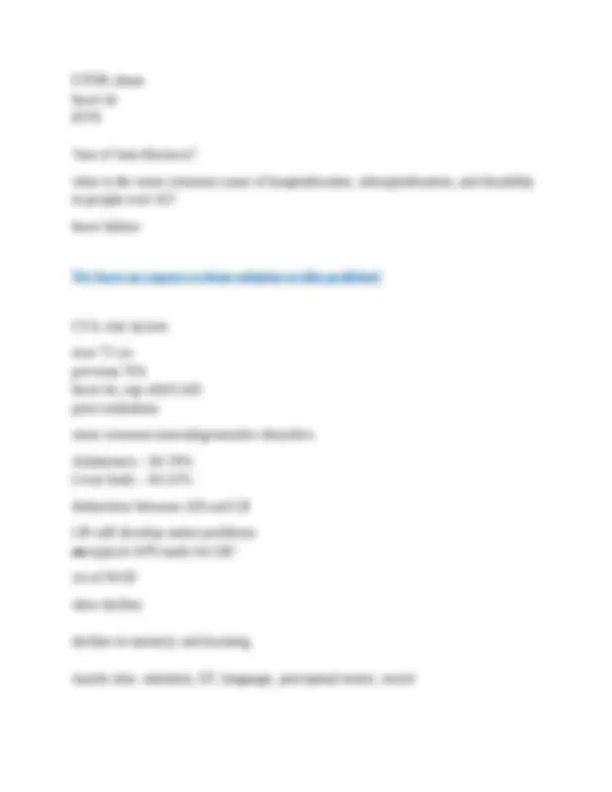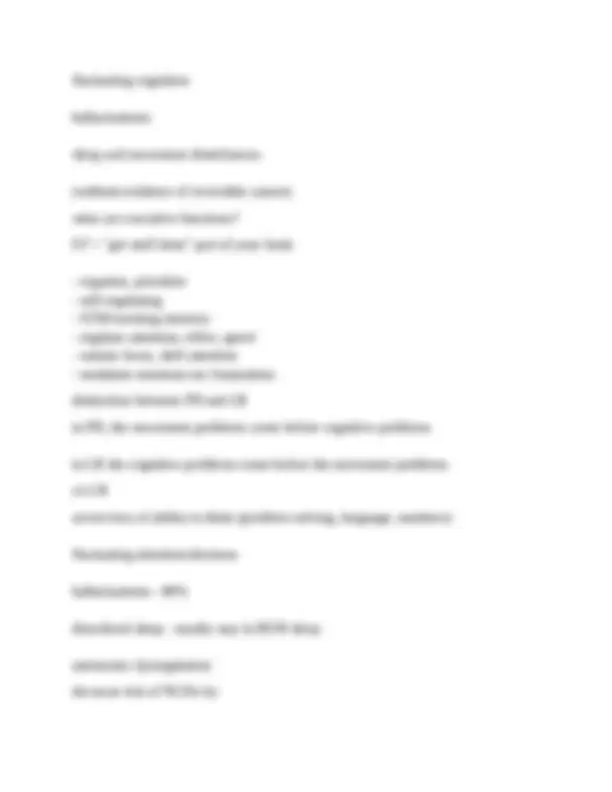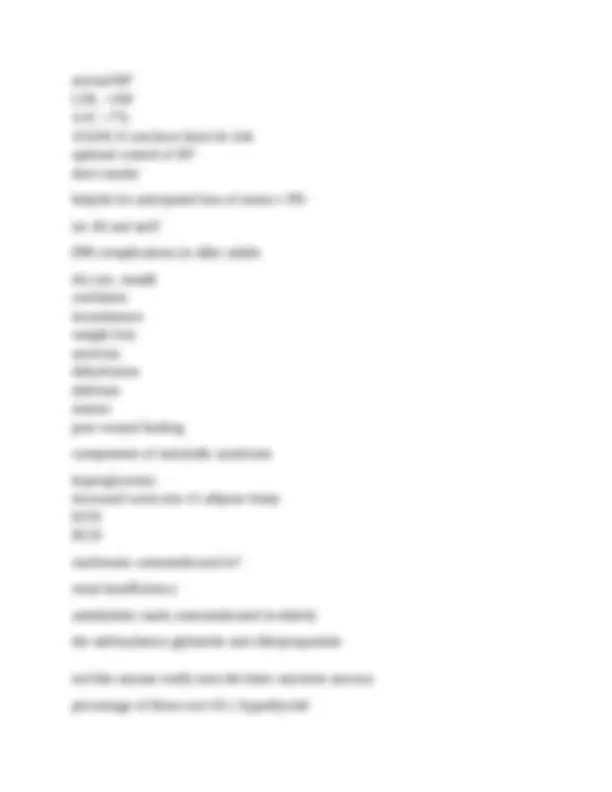





Study with the several resources on Docsity

Earn points by helping other students or get them with a premium plan


Prepare for your exams
Study with the several resources on Docsity

Earn points to download
Earn points by helping other students or get them with a premium plan
Community
Ask the community for help and clear up your study doubts
Discover the best universities in your country according to Docsity users
Free resources
Download our free guides on studying techniques, anxiety management strategies, and thesis advice from Docsity tutors
A comprehensive overview of changes in the aging heart, cardiovascular risk factors, and neurological disorders in older adults. It covers topics such as hypertension, heart failure, atrial fibrillation, stroke, alzheimer's disease, lewy body dementia, and diabetes complications. The document also includes exercises and questions related to these topics, making it a valuable resource for students studying gerontology, health sciences, or related fields.
Typology: Exams
1 / 6

This page cannot be seen from the preview
Don't miss anything!




Changes in the aging heart
how many people in the USA have HTN 1 out of 3 most common demographic: AA living in the South people over 60yo of any race should have a BP lower than 150/ complications of uncontrolled HTN increased risk of CVA, HF, cardiomyopathies death microvascular complications worsened renal insufficiency/failure presentation of MI in older adult may be "silent" - no classic s/s s/s may be atypical:
fluctuating cognition hallucinations sleep and movement disturbances (without evidence of reversible causes) what are executive functions? EF = "get stuff done" part of your brain
normal BP LDL < A1C <7% ASA81 if you have heart dz risk optimal control of HF don't smoke helpful for anticipated loss of motor c PD tai chi and stuff DM complications in older adults dry eye, mouth confusion incontinence weight loss anorexia dehydration delirium nausea poor wound healing components of metabolic syndrome hyperglycemia increased waist size r/t adipose tissue HTN HLD metformin contraindicated in? renal insufficiency antidiabetic meds contraindicated in elderly the sulfonylureas glyburide and chlorpropamide not like anyone really uses the latter anymore anyway percentage of those over 65 c hypothyroid